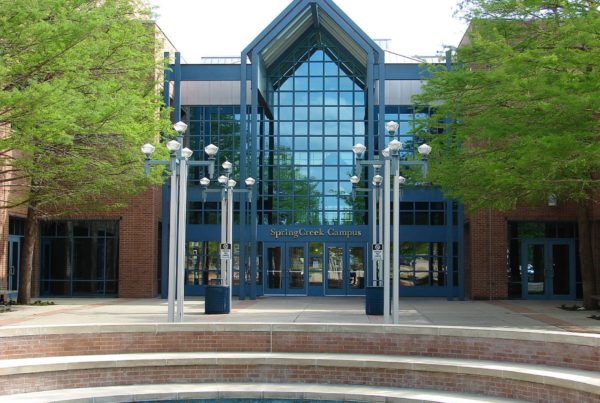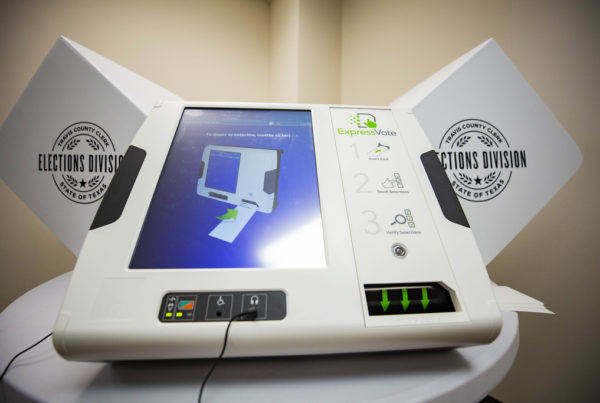This election, Texas Supreme Court Justice Jane Bland became the first statewide candidate in Texas history to earn more than 6 million votes, giving her another term on the court. But Bland didn’t start her career there as an elected official; she was originally appointed to the position.
Randall Erben, University of Texas Law professor and member of the Texas Ethics Commission, told Texas Standard that Bland was an appointee of Texas Gov. Greg Abbott, and that appointees to the state supreme court are common practice.
“We have elected our supreme court judges since 1891, and that’s in the Texas Constitution. And also, the constitution provides that the governor appoints vacancies to the Supreme Court when one arises,” he said.
Seven out of nine Texas Supreme Court justices were originally appointed by Texas governors: three from Rick Perry and four from Abbott. And the court is often a fast track to federal judgeships.
“The Supreme Court is a ripe ground for appointments to the federal bench. I mean, two of the people that left the [Texas] Supreme Court recently got appointed to the federal bench,” Erben said.
When a justice resigns, a governor can appoint a new justice to fill their spot until the next election cycle. But a new law passed in 2019 created a bipartisan commission to review the process of judicial selections.
“[It’s] a 15-person commission, and they’re tasked to provide a report to the legislature by the end of this year. And so we’ll see if that bipartisan commission comes up with any novel suggestions about changing the way we select our judges in Texas,” Erben said.
But changes could require a change to the Texas Constitution, which would require approval from the legislature. Erben says that could be difficult.
“You have 83 Republicans and 67 Democrats,” he said. “In order to amend the constitution, they need two-thirds votes. So you’re going to need a bipartisan supermajority in order to get any change to the constitution in the way we select our judges.”
It could prove especially difficult during an upcoming legislation that will likely have more pressing priorities like the pandemic.
“We are not in a normal legislative session,” Erben said. “We have the state budget crisis that’s been caused by the economic damage that the pandemic has caused. When the legislature convenes in January of 2021 … other issues like judicial reform, which, in another year might have some wind behind it, are going to be less important.”













